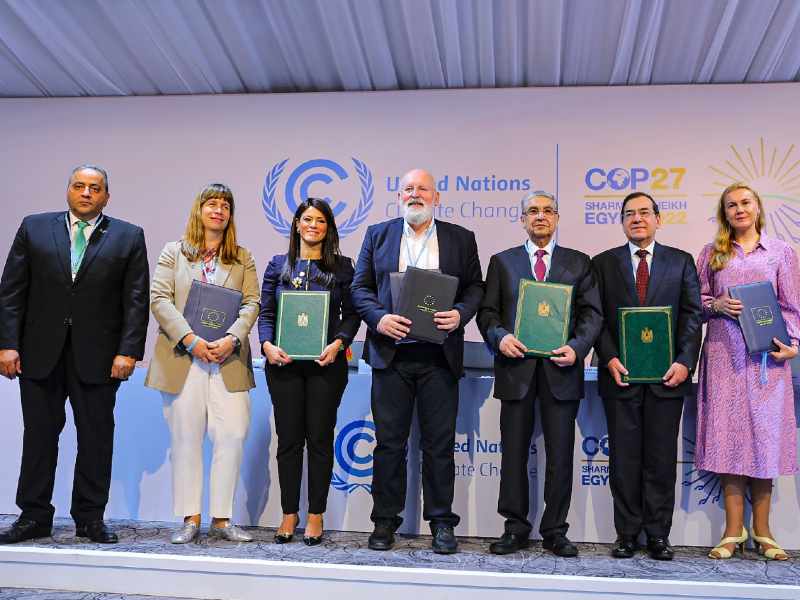
The EU and Egypt have signed a cooperation agreement to develop renewable hydrogen and prepare the groundwork for a just transition in Egypt.
The partnership was announced at COP27 in Sharm El-Sheikh and is considered an important building block in an EU-Mediterranean Renewable Hydrogen Partnership.
The MoU will provide the infrastructure and financing frameworks to support the development of a renewable hydrogen industry and trade across the EU and Egypt. Furthermore, the partnership will help the EU reach its RePowerEU goal of 20 million tonnes of renewable hydrogen consumption in 2030, reducing reliance on Russian gas.
Finally, the agreement aims to establish a global rules-based market for hydrogen solutions and global safety and environmental standards.
The agreement was signed by European Commission executive vice-president Frans Timmermans and commissioner Kadri Simson, Egypt’s minister for petroleum Tarek El Molla and minister for electricity and renewable energy Mohammed Shaker El-Markabi.
Frans Timmermans said in a statement: “This first-of-its-kind agreement on renewable hydrogen with Egypt shows that the EU is leading the work on establishing a framework for a global hydrogen economy. Together with reliable energy partners, like Egypt, we will establish a secure and competitive renewable hydrogen supply chain. We also need to make sure our partners are well equipped to grasp the opportunities inherent in the green transition, while ensuring a fair transition to their citizens. This is why our contribution to Egypt’s Energy Wealth Initiative, coming in the middle of COP27, is so important.”
The representatives also signed a Joint Statement with the European Bank for Reconstruction and Development (EBRD) and the Egyptian minister of international cooperation, Rania El Mashat, announcing the Commission’s contribution of up to €35 million ($36.2 million) in support of Egypt’s Energy Wealth Initiative.
The Energy Wealth Initiative was launched by the Egyptian government and the EBRD to implement the energy pillar of the Nexus of Water, Food and Energy Initiative designed to accelerate implementation of the country’s new climate change strategy for 2050 launched in May 2022.
The initiative aims to shut down 5,000MW of gas-based power generation capacity and facilitate investments to support the installation of 10,000MW of new renewable energy capacity.